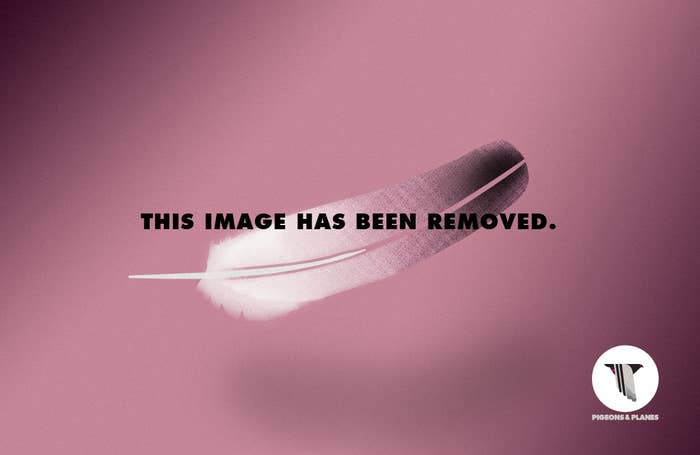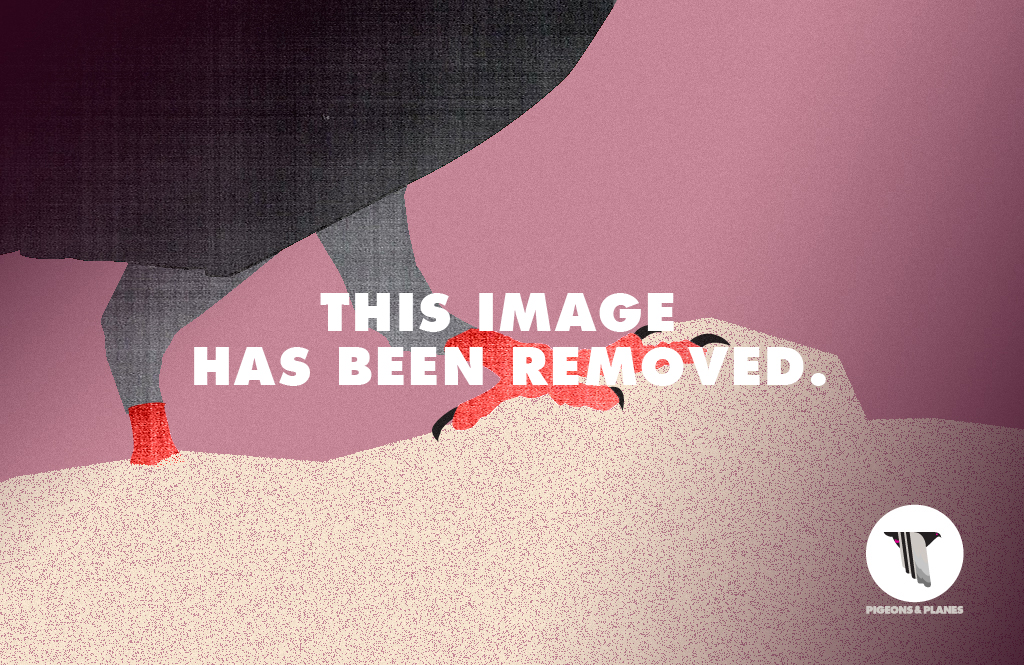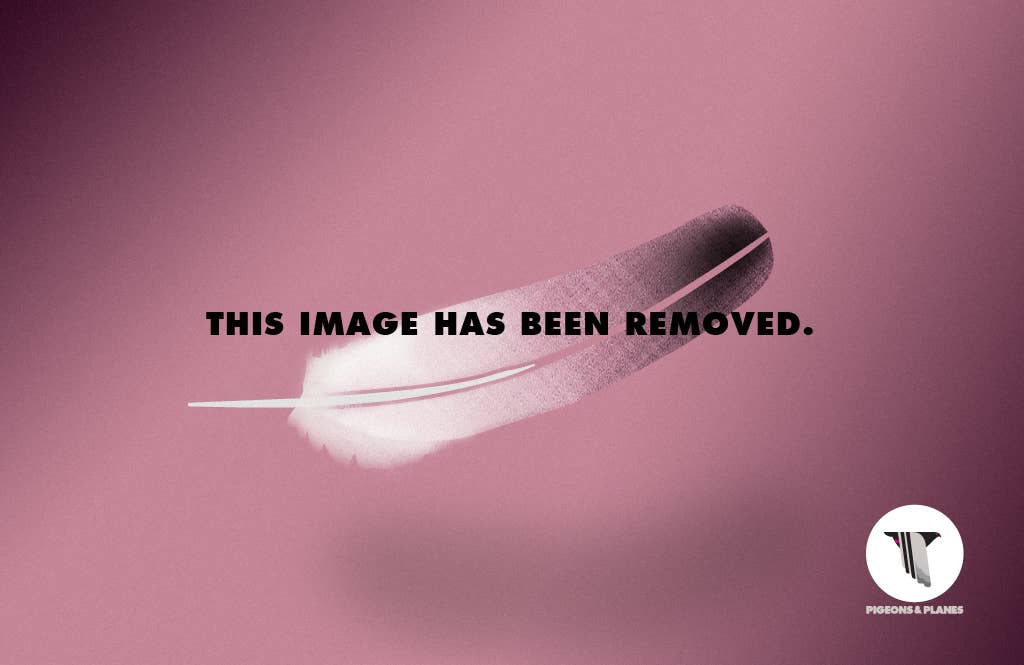1.

By Katie Kelly
In the past few years, there’s been a handful of talented vocalists who have helped to redefine and re-popularize soulful pop music. These artists use raw talent and modern sensibility to win over fans, not stage gimmicks or studio tricks. It may be tempting to simplify Swedish singer Seinabo Sey as the newest artist to join this group, but that would be selling her short. When you delve deeper into her music, it’s clear there’s something supremely unique about Sey’s sound that positions her as more than just a voice.
As the daughter of legendary West African musician Mawdo Sey, the singer spent part of her childhood in Gambia before moving to Stockholm at age 15. With aspects of R&B, pop, reggae, and touches of traditional African music, her sound is an melting pot of her cultural upbringing.
Now Sey has linked up with accomplished producer Magnus Lidehäll (who produced Sey’s first two songs as well as Mapei’s massive “Don’t Wait“) to record her debut album. While in Stockholm, Sey took time away from the studio to speak to us about mainstream pop music, her musical upbringing, and being a rap sidekick.
From what I’ve read, you had an interesting childhood.
I grew up in a small town on the west coast of Sweden called Halmstad. We moved to Gambia when I was like three or four. I think we moved to Gambia to pursue my father’s career further, I can’t really remember, but our whole stay there was about his career so I had always had musicians around me and music everywhere. I remember seeing him sing in an opera. That was one of my earliest memories. It was this French opera which was really random and really cool. I still remember that melody, which is crazy. It was so long ago. But in Gambia, with kids and especially females, the men aren’t really like, “Here go take space,” so I was on the side and my little brother was more the outgoing type. But I remember just loving music. I would have never become a singer without my dad. That would’ve never happened.
What age did you come to Stockholm? Did you move by yourself?
I came to Stockholm by myself. Well, my dad had brothers and sisters here so I wasn’t entirely alone. I had some cousins here, but I didn’t live with them at that point. I moved here when I was 15 from Halmstad, to start music school. I worked my ass off to get into other courses because I thought I wanted to be an academic, but then I realized that I really needed to move away from that town. It originally started with me moving here just to see if I could even get in, to see if I was good enough.
Did you need to move away to make a name for yourself in music or just to get away from the town?
It was more so the town. I just never really felt at home in that town. It was too small. Halmstad has maybe only 90,000 people there.
Okay, so now you’re 15 and in Stockholm and starting music school. How did you make that decision?
I actually went to music school from fourth grade to ninth grade as well in Halmstad. There’s a very big difference between being 10 years old and choosing to start music school, where we basically just had choir practice and we sang all the time. I think it’s a bit more serious when you’re 15 and you’re like, “Okay I’m going to continue to do this.”
Was there a moment when you realized this is what you wanted to do as a career?
I don’t really know when I started to think that I wanted to make a name for myself or be an artist or anything like that. It just kind of came naturally when I realized I was quite good at it. That came later when I started to find my own identity.
How old were you when that happened?
I must have been 18 or 19 when I thought that I could be worthy of the title “singer/artist.” I think a lot of it happened when I met Magnus [Lidehäll] who’s producing my music now, and I started to really think that what I was creating was original, because that’s what I really want to do.
How did that connection come about?
He started out in Afasi & Filthy, a well known Swedish rap group, and he was the producer and Afasi (Herbert Munkhammar) was the rapper. We listened to them when I was kid—well he’s not that much older than me but they started off really early so I used to see them on TV—and my little brother used to love their production. He’d be like, “Listen to their beats!” I didn’t really pay him much mind. But I got to know Herbert and he told me to just email Magnus. Magnus just had produced some Kelis and some Britney Spears I think, and I was like, “No way this dude has time to ever listen to a song from me.” But I emailed him and he was really cool and he was like, “Come over and listen to these beats.” So it really started then.
Some of the early, early beats he sent to me—I guess that was a few years ago—are the beats for “Hard Time.” We actually made “Hard Time” from an entirely different beat than what it is now. But a demo that I had sent him a while ago was “Hard Time.” I guess he just heard something he liked. I think at this point he had some idea of making his own producer record and he wanted me as the voice on it. [The direction of the record] wasn’t even really clear to me in the beginning, but it took us like a year and a half to decide that it was going to be my own solo project.
We’re both really kind of into mixing together as many genres as possible and not even thinking of it in terms of genres. The sound we like is loud and we try to create something huge.
What kind of sound can we expect on the upcoming album? Is it going to be similar to the material you’ve already released?
Sometimes it feels as though there’s quite a big difference between both “Younger” and “Hard Time,” so the space in between is what we’re kind of trying to fill. That’s kind of the goal there. I’m very, very bad at describing it but I think the common thread in it all has to be my voice and my lyrics basically, but the production is really open. We’re both really kind of into mixing together as many genres as possible and not even thinking of it in terms of genres. The sound we like is loud and we try to create something huge.
5.

I don’t know if this is true, but I saw somewhere that you were once a rap sidekick?
[Laughs] Yes, that’s true.
How did that happen?
So the rap group I was telling you about with Magnus, Herbert has another group called Maskinen which is Swedish for The Machine—it was just really random, they were like 19 or 20—and they were like, “Do you want to go on tour with us?” I had been in the studio with them and I think the idea was that I was supposed to sing the chorus or something. Then they just asked me to perform with them once, which was really weird and it ended up with me just going on tour with them for like a year and absolutely just being a rap sidekick and just singing choruses. It was very random.
Did you enjoy it?
I loved it actually, it was like my secret dream that I would absolutely never, ever try. I might sing quickly but I would never say I’m a rapper, but I do really, really love hip-hop.
Is there a hip-hop artist that you would ever want to collaborate with?
I’m very bad at listening to new music. I like a lot of cool new Swedish artists and I love Kendrick Lamar. But my favorite rapper ever is probably Mos Def so I would absolutely die if I could collaborate with him.
Is there anyone else you’d like to collaborate with, or anything you have in the works?
In terms of collaboration I would love to sing with Kwabs. He has an amazing voice, I really love the way he sings. He’s brillant. Otherwise I love CeeLo—his voice is ridiculous and everything CeeLo does is actually perfect. I’d just love to sing with guys. I haven’t done that really. And it’d have to be with the right song. I’d really love to challenge that whole mold of, “You take one verse, I take one verse.” I’d love to come up with something new.
I think it’s almost more difficult, when you have someone like yourself who has such a powerful voice, to pick someone to collaborate with.
It’s just about taking it easy. Kwabs could sing in all types of ways but the way he chooses to use his voice… I just like that. It’s very clean, very simple, with a crazy depth. A voice like Erykah Badu has a really simple way of singing too that I like. I think that’s the main thing.
Speaking of vocalists, there’s a really interesting thing happening with artists like Sam Smith and Adele who are true vocalists and started in a more indie world but are now having a very successful crossover to a more mainstream career. Is that something you see for yourself?
If I were to crossover into the mainstream, I just hope happens on my terms. My goal is to really be able to sing as long as I can. I love the way Adele and Sam Smith have done it because there’s just something very pure and very simple about them still. They convey feelings and that’s why they get away with not looking like conventional pop stars but still being like the biggest pop stars. That’s inspiring. That’s really what I would want to see more of and it’s really rare. I mean, I would love to sing to as many people as possible, but I’m not going to sit and analyze it because I think then you miss the whole point and I don’t really think they’ve done that themselves either.
One of the interesting aspects of your music is that it’s a melting pot of influences. What kind of music did you listen to growing up? Was it your father’s music or more modern, or a mixture of both?
I grew up on reggae music. That’s pretty much all my parents listened to all the time, but my dad made really traditional West African Senegalese and Gambian music. I also grew up with a lot of Sufi songs and people singing a lot of religious music. There’s this part of Islam called Mourdism that’s in Senegal and they have a really interesting chant thing going on that’s really amazing. I remember I got irritated because I had to listen to it all the time as a kid, but now I appreciate that those melodies were kind of embedded in me. I remember my dad did try and play me some Björk, but I didn’t really respond to it because I was 12. So there were a lot of different kinds of music, but mainly reggae.
As far as when I listened to music myself, Alicia Keys was on TV and I thought she was really cool. So a lot of Alicia Keys, a lot of Destiny’s Child, a lot of Lauryn Hill, a lot of Erykah Badu. That was my music, because my parents didn’t listen to that. But now when I’m creating music, I realize that I sing a lot like my dad. And I really love CeeLo because he sounds like a West African singer, he has this beautiful way of singing really straightforward tones. And it’s interesting to try and sing that way, but to also try and write a conventional pop song.
There’s some really, really raw thing that you’re not saying, like, “I don’t want to be alone.” These are the type of ideas that are hard to say or admit and that’s what I’m looking for. I’m just trying to articulate that as beautifully as I can.
I read that a lot of your lyrics are derived from your fascination with how people communicate, and I think that really shows.
That’s the whole point of it. It’s funny because I have a really hard time collaborating with people because I myself am really bad at communicating. But yeah, I always search for the real problem, because most of the time what’s spoken about isn’t really the issue. There’s some really, really raw thing that you’re not saying, like, “I don’t want to be alone.” These are the type of ideas that are hard to say or admit and that’s what I’m looking for. I’m just trying to articulate that as beautifully as I can, and as well and as simply as possible, and to have an absolute balance in that. That’s my biggest challenge but that’s also what I love with writing. The lyrics are like the mathematics to me. That’s the really hard part, but it’s the part I’m really proud of when I get it right.

